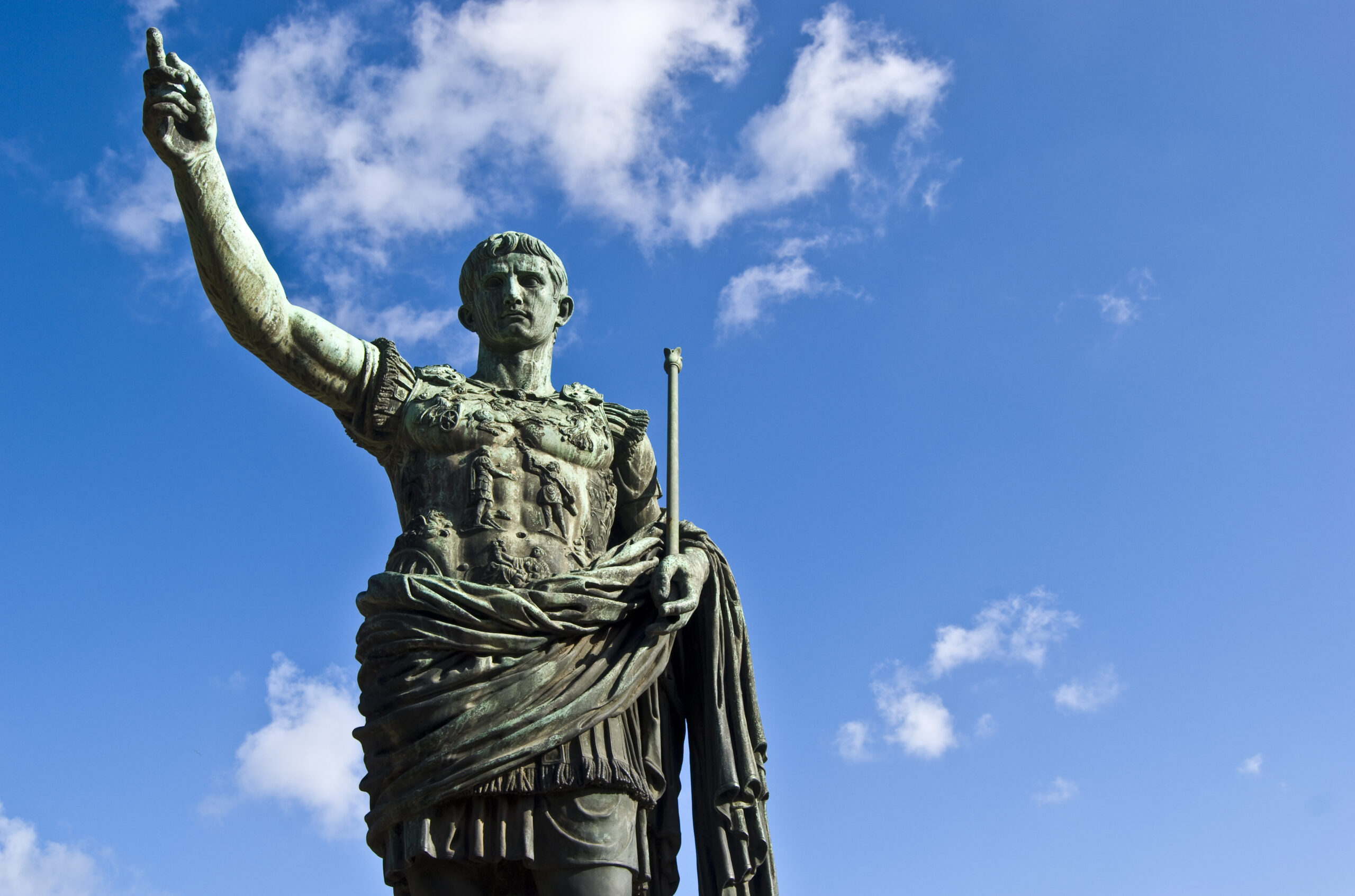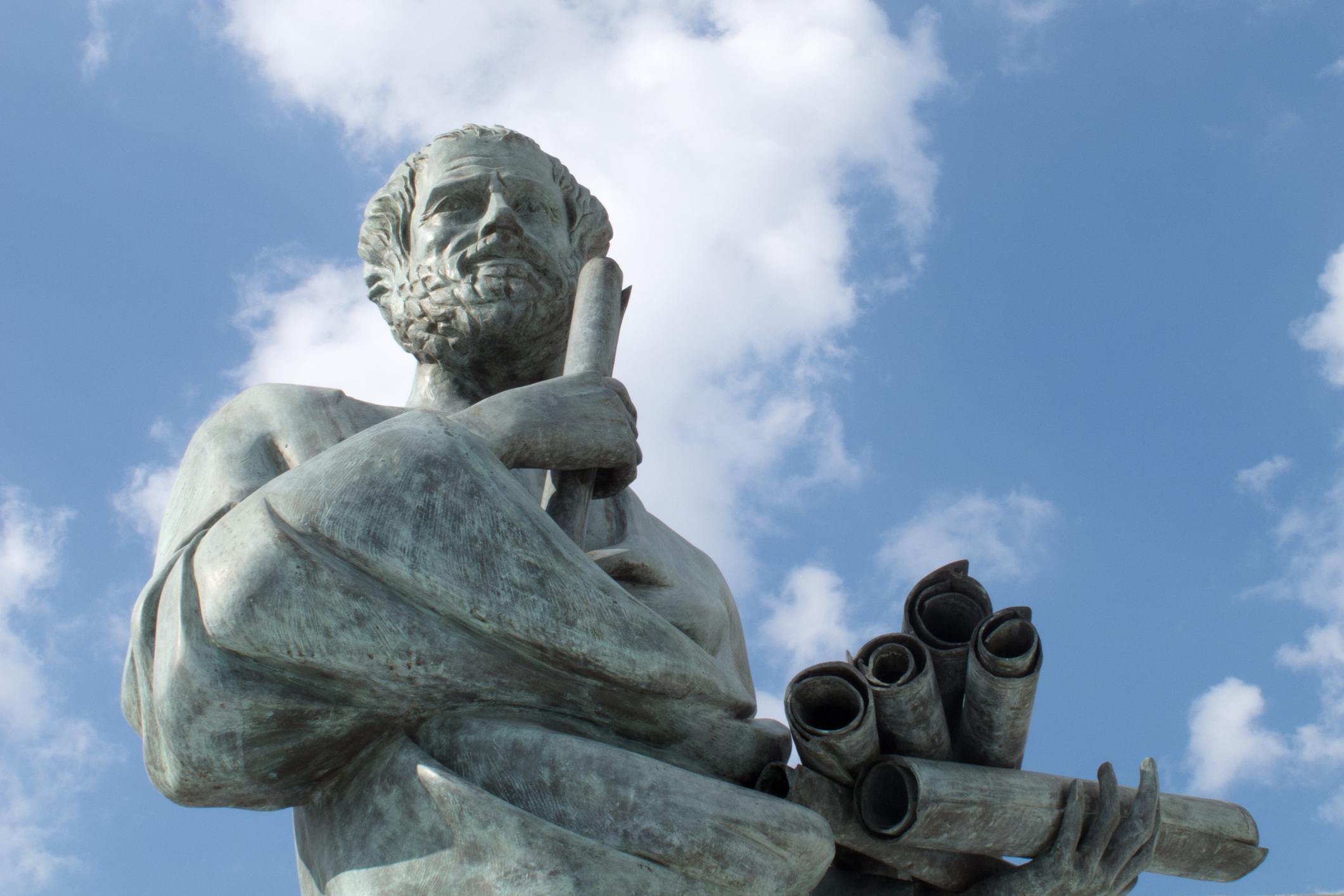The Left seeks to overturn the 2024 election even before it happens.
Whether It Is Prudent to Speak of Caesarism

Question #[Redacted], Article 1.
It would seem imprudent to speak of the doctrine of Caesarism.
First, prudence requires awareness of certain unchanging principles of human nature and politics. But Caesarism is a false doctrine simply; it is never just for one person to establish “permanent absolute rule” over a community. Every human person possesses equal natural rights; as a result, governments are legitimated exclusively by the consent of the governed. This standard, though rarely satisfied, always applies to every human society in every time and place. With respect to legitimacy, there is no difference between a Caesar and a tyrant. The doctrine of Caesarism is nothing more than a sophisticated apologia for tyranny. Therefore it is never prudent to speak of a doctrine of Caesarism.
Second, prudence is concerned not only with universal practical truths but especially with particulars. Even if there is a true doctrine of Caesarism, it is irrelevant to our current conditions. Many acknowledge that the American constitutional order is badly damaged, that we live in a “late republic,” or that we face a “crisis of the two constitutions,” the result of a partially-successful attempt to subvert our constitutional republic and replace it with an administrative state that continually re-interprets our “living constitution.” But our regime has not completely broken down. The Constitution is still widely invoked in our political debates, despite important hermeneutic disagreements; our governing institutions include those created under the Constitution, despite unfortunate alterations and additions; our government is still legitimated by the consent of the governed, despite controversial electoral proceedings. Caesarism or “post-constitutionalist” rule applies only in a “post-constitutional situation,” in which a republican constitutional order has completely broken down. Thus Caesarism is irrelevant to our current conditions. Therefore it is imprudent at present to speak of the doctrine of Caesarism.
Third, prudence is mindful of the possible effects of any action taken. To speak of Caesarism is “to cast a doubt on the absolute sanctity of the established constitutional order, encouraging dangerous men to confuse the issue by bringing about a state of affairs in which the common good requires the establishment of their absolute rule.” Who can say when, exactly, a republican constitutional order has completely broken down? “It is better for the people to remain ignorant of the distinction between Caesarism and tyranny and to regard the potential Caesar as a potential tyrant. No harm can come from this theoretical error which becomes a practical truth if the people have the mettle to act upon it” (Strauss). But a great deal of harm can come to the American republic if the doctrine of Caesarism is openly discussed. Prudent Americans ought to fear Caesarism above all as a self-fulfilling prophecy. The less said about it, the better the chances that the republican constitutional order can and will be preserved or restored.
On the contrary, stands the authority of the Washington Post, which teaches that “Democracy Dies in Darkness.”
I answer that, so long as the foundation of government is to be laid on a broadly popular basis, it is prudent to speak openly of Caesarism, so as to bring as many as possible to political wisdom.
Ideological narrowness and historical ignorance contribute greatly to the “darkness” mentioned by the Washington Post. The ideologue insists that only one form of government is legitimate and is inclined to establish it universally regardless of local or current conditions or capacities. The ideologue is ignorant of Aristotle’s distinction between “the best regime simply,” which establishes a universal standard by which to judge every potential and actual regime, and “the best regime relative to existing conditions,” which is to be established and maintained here and now. As Montesquieu teaches, “the government most in conformity with nature is that government whose particular disposition best relates to the disposition of the people for whom it is established.” The “existing conditions” for one regime rather than another include the entire “disposition”—geographic, economic, linguistic, customary, moral, religious, etc.—of the people in question.
Prudence perceives the correct thing to do in particular circumstances and acts accordingly. The prudence of the founder or statesman perceives the best regime relative to existing conditions, and then institutes or perpetuates it accordingly. The cultivation of prudence, personal or political, requires not only an awareness of and assent to the human good, but maturity of character and familiarity with a great multitude of particulars. Just as good novels or films might serve as vicarious experiences for the cultivation of personal prudence in a private individual, a rich stock of historical examples is necessary for the cultivation of political prudence in a citizen body. Contemporary education and media, because they are shoddy and because they are progressive, tend to reduce complex historical episodes to simplistic morality tales. But the fact that most men think about the Roman Empire daily suggests that the preconditions for political wisdom may be more broadly distributed than our mainstream sources would have led us to suspect.
The best citizen will approach the founder or statesman in his capacity for political prudence. Our founders understood the distinction made by Aristotle and Montesquieu, and they saw the phenomenon of Caesarism as a stage in the regime-change necessitated by a corruption in the “disposition” of the people. As Noah Webster observed (edited to standard modern English):
In Cesar’s time, the Romans were ripened for a change of government; the spirit of a commonwelth was lost, and Cesar was but an instrument of altering the form, when it could no longer exist. Cesar is execrated as the tyrant of his country; and Brutus, who stabbed him, is applauded as a Roman. But such was the state of things in Rome, that Cesar was a better ruler than Brutus would have been; for when the spirit of a government is lost, the form must change…. Cesar was absolute, but his government was moderate, and his name was sufficient to repress faction and preserve tranquility. The zeal of Brutus was intemperate and rash; for when abuses have acquired a certain degree of strength; when they are interwoven with every part of government, it is prudence to suffer many evils, rather than risk the application of a violent remedy.
In reply to the first objection, Caesarism is not a false doctrine simply. Neither was it unknown to our founders, as Casey Wheatland and Timon Cline have shown, nor to the intellectual tradition in which they were educated, for example, the writings of Plutarch and Shakespeare. Nor does the Declaration of Independence deny the doctrine of Caesarism; it rather gives the widest possible latitude to the people to establish new governments on the basis of whatever principles, and with whatever organization of powers, “as to them shall seem most likely to effect their safety and happiness.” As we have written on another occasion, the Declaration of Independence is dogmatic only with respect to the origin (in the people) and the purpose (safety and happiness) of government. The means (regime) is left to the determination of prudence.
In reply to the second objection, insofar as the doctrine of Caesarism forms part of an education to political wisdom, it is prudent to speak of Caesarism even before the complete breakdown of a republican constitutional order: either as a warning meant to alert one’s compatriots to the onset of the very political degradation that enables and is perpetuated by Caesarism; or to prepare one’s compatriots to navigate a post-constitutional situation with sobriety.
In reply to the third objection, those who object to speaking of Caesarism on the grounds that such discussion would weaken the people’s attachment to the Constitution assume the worst of the people and thereby admit the fragility of our regime. Republican self-government requires a virtuous people. Such virtue includes political prudence, and the capacity to judge political regimes rightly. To speak of Caesarism is to attempt to educate the people to political wisdom. If merely speaking of Caesarism would tempt the people to adopt a Caesar, then the people would seem already to deserve a Caesar. Moreover, belief in “the absolute sanctity of the established constitutional order” is undesirable in citizens. No earthly regime is “absolutely sacred.” A regime is a means to securing the good of a political community. Therefore, to seek the good of one’s political community is the highest political duty, with reference to which loyalty to any particular form of government ought to be judged. A regime is owed allegiance only insofar as it serves its proper end, the good of the political community. And insofar as the doctrine of Caesarism comprises part of political wisdom, knowledge of this doctrine is an aid to seeking the good of one’s political community. Finally, knowledge of the doctrine of Caesarism can only increase one’s appreciation of the rare and fragile achievement that is a republican constitutional order. This knowledge is a benefit to the knower regardless of the circumstances in which he lives.
The American Mind presents a range of perspectives. Views are writers’ own and do not necessarily represent those of The Claremont Institute.
The American Mind is a publication of the Claremont Institute, a non-profit 501(c)(3) organization, dedicated to restoring the principles of the American Founding to their rightful, preeminent authority in our national life. Interested in supporting our work? Gifts to the Claremont Institute are tax-deductible.
The internal contradictions that fuel the regime draw a tightening noose around America's neck.
Lawfare threatens to destroy our constitutional republic.
The future of Western civilization is at stake.
It’s time to take the fight to the Left.
A modest reflection on the U.S.’s perfection.






